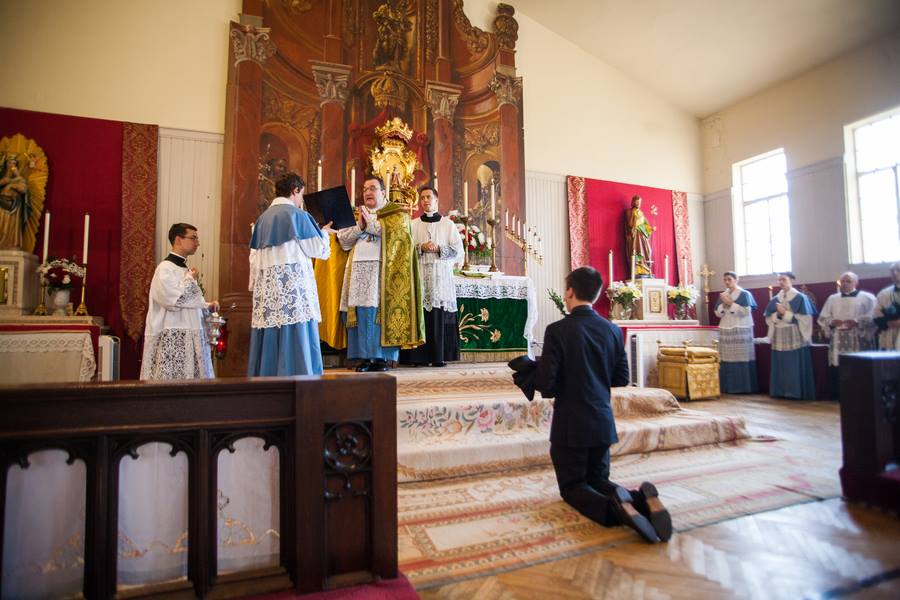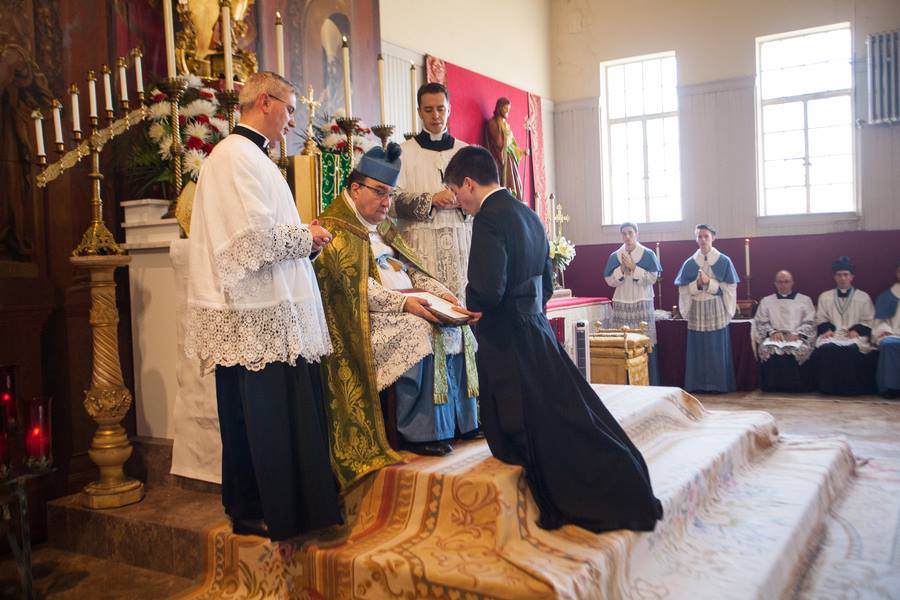Vocations to the Clerical Oblatehood
Formation
Candidates for oblatehood within the Institute must complete a five-year training program consisting of introductory Latin and French, thorough instruction in the traditional Liturgy and the Institute's spirituality, and ongoing study of Church doctrine and history. Some are also asked to pursue practical or academic studies pertaining to their talents and responsibilities within the Institute.
Oblates begin their formation with two years of candidacy in one of the Institute’s houses in their native country. After the second year of practical and academic training, an oblate will receive a cassock, surplice and biretta with the Institute's signature blue pom-pom. At the discretion of their superiors, established oblates may receive minor orders, and perhaps even the sub-diaconate or diaconate.


From there, formation continues until candidates are made full members of the Institute of Christ the King and receive the silver choir Cross of St. Francis de Sales, indicating they have made formal promises to the Prior General and offered their life-long service to the Church through the Institute. Oblates wear this cross when assisting in the choir for the Holy Mass, Adoration and Divine Office.
Requirements for Prospective Candidates
To enter the Institute of Christ the King’s formation program to the oblatehood, candidates must:
• Be between the ages of 18 and 40
• Have a high school diploma or equivalent, and/or working experience
• Have a two-page resume, which includes date of birth, main schooling and working experiences, and a photograph
• Have the recommendation of at least two priests
Fulfilling these requirements, prospective candidates may email our U.S. Provincial Headquarters in Chicago to contact the vocations director.
Request a Vocations Packet
If you would like to learn more about vocations in the Institute of Christ the King, please contact our U.S. Provincial Headquarters by email.
